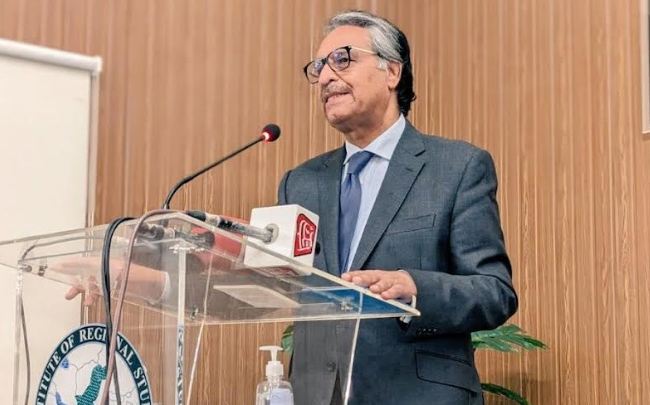ISLAMABAD, JAN 26 /DNA/ – While Climate crisis is the reality of our times, peaceful coexistence is the only way forward for enhanced regional cooperation, said Ambassador Jalil Abbas Jilani, Federal Minister of Foreign Affairs. He was addressing the concluding ceremony of Regional Dialogue 2024 titled Climate Crisis: Shaping South Asia’s Resilience organized by the Institute of Regional Studies (IRS).
He said that peaceful existence could be achieved if bold and courageous decisions were made by statesmen. The Foreign Minister also emphasized exploration of potential avenues of cooperation on climate change. The three-day event was inaugurated by Dr Arif Alvi, President Islamic Republic of Pakistan.
The conference had six main themes encompassing South Asia’s Climate Vulnerability, The Commitment on Regional NDCs, Climate- Conflict Nexus, Adapting to Climate Calamity, Climate Financing and South Asia’s Climate Future. The conference brings together academics, practitioners, and policy makers from within Pakistan and across the region to discuss the aforementioned subject areas.
Mr Ahmed Kamal, Chairman, Federal Flood Commission while addressing the participants of the Conference commented that South Asia continues to remain under the influence of a high degree of vulnerability and exposure to climate hazards, in particular, to floods, cyclones and droughts. The high degree of both vulnerability and exposure could be attributed to the region’s high population growth rate and narrow levels of adaptive capacity.
He added that Integrated Drought Management should include promotion of drought tolerant crops, extended research on weather patterns, impact of climate change, regular drought monitoring on regional level, emphasis on ground water recharge, and the implementation of Adaptation Plan.
Mr Abdul Basit, Head of South Asia Desk at the International Centre for Political Violence and Terrorism (ICPVTR), Singapore was of the opinion that climate change was a development issue and that ‘securutizing’ it could prove to be disastrous. He said that there was a dire need for security policymakers and practitioners to acknowledge the fact that there was an unmistakable connection between the two necessitating the need to map the impact of climate change on terrorism and vice versa. Dr Mazhar Hayat, Deputy Secretary Ministry of Climate Change stressed the need to set sectoral-based baselines and promote mitigation and then adaptation.
Other sessions for the day included speakers from Bangladesh, Nepal, Sri Lanka, India, the US and Singapore who discussed the various aspects of climate change in South Asia.












